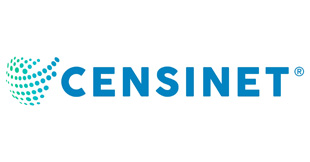Telemedicine isn’t just another way to connect patients with doctors. AristaMD has carved out a niche in connecting doctors with, well, other doctors.
The San Diego-based telehealth company’s software links primary care physicians and medical specialists through virtual consultations, communication that is intended to reduce healthcare costs by slimming down the number of referrals made to specialty care providers. Wait times associated with specialist referrals are notoriously lengthy, during which time a worsening condition can result in a trip to the emergency room or even hospitalization.
AristaMD, founded in 2013, aims to improve patient access to specialty care by providing primary care doctors access to a network of specialists they can tap for a virtual consultation. LeVasseur says the AristaMD network encompasses hundreds of specialists, nearly all of whom provide remote feedback in addition to full-time clinical work.
More than five years of data from AristaMD’s customers—most of which are health plans—revealed that the dialogues it facilitates, which it calls eConsults, reduced the need for routine clinical specialist referrals by more than 70 percent, according to the company.
“Many of these issues can be resolved by the primary care provider either calling or emailing the patient [or] writing a prescription,” LeVasseur said. “It’s much more efficient, and it’s saving that patient from unnecessary time off work, unnecessary out-of-pocket spend to go to another visit, etc.”
In some cases, the consulting physicians determine a patient doesn’t need to be referred to see a specialist after all, and that the primary care doctor can handle their needs—eliminating an otherwise unnecessary in-person visit to the benefit of both that patient and others with higher acuity conditions who are waiting to be seen.
“We have a huge imbalance between the supply of specialists and demand,” CEO Brooke LeVasseur (pictured) told Xconomy. “We have this very large and growing aging population that have increasingly complex issues that require specialty care—over 40 percent of our population has one or more chronic conditions—and these folks rely on getting access to specialists, and there just aren’t enough specialists, and in places where there are enough, they’re not often distributed in a way that makes them accessible to patients.”
Some barriers are geographic; other are based on health plan particulars, some of which don’t cover visits to specialists.
Investors have recently found AristaMD’s progress compelling: The company raised $18 million in March in a Series B round led by the investment arm of Cigna (NYSE: CI) and the investment fund associated with the MemorialCare Health System. Avalon Ventures, which led the startup’s Series A round in 2016, the University of Colorado’s Healthcare Innovation Fund, and Stanford Health Care also participated.
Then, earlier this month, the company added $6 million to the financing, closing the round at $24 million following the addition of funds from Ascension Ventures, whose limited partners include a baker’s dozen of US not-for-profit health systems, and Boston’s .406 Ventures, which primarily backs enterprise technology and digital health companies.
Now AristaMD, which is approaching 40 employees, plans to bulk up to about 55 or 60 by year’s end, mostly boosting its sales force.
“We have three parts to our sales team: a payer-focused group, a health system-focused group, and a clinic sales team that after we sign contracts will go out to the clinic, so we’re bulking up all three of those parts of our sales organization,” LeVasseur said.
Some of the funds will go to continue improving its software, she added.
And while COVID-19 pandemic has hugely impacted the volume of primary care visits, it has also accelerated the adoption of telemedicine, with some insurers allowing providers to bill for remote care on parity with in-person visits, at least for the time being.
“What’s nice about eConsults is that they can wrap around the primary care provider and their interaction with the patient, whether that touch is virtual or whether it’s in person,” she said. “This is being used proportionally for a much higher percent of those patient touches than it was pre-COVID … We expect to see that continue even when in-person visits do return to normal.”
Of course, “normal” likely won’t resemble what patients remember given the number of visits that have been put on hold given concerns that they could contribute to the spread of the virus.
“Procedures have been delayed, even elective visits have been delayed, and what this means is there is there is a gigantic multi-month backlog of patients now, and that backlog just continues to grow because patients continue to have specialty needs,” she said. “There really has to be a way for specialty clinics to appropriately inbound referrals that are sitting in the queue. … If we don’t spread those cases out and we don’t match the acuity level and the complexity level of the patient with the training and modality of the provider, we’re never going to work through this backlog and patients are going to be in the hospital because their needs are not being addressed in a timely fashion.”




